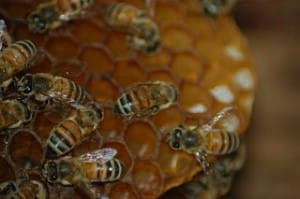Farmers Weekly
By Philip Case

The European Commission has called for a two-year ban on all uses of neonicotinoid products in crops considered dangerous to honey bee health.
Commission spokesman Frederic Vincent said the EU’s executive arm was proposing a suspension on the use of neonicotinoid pesticides in oilseed rape, maize, sunflowers and cotton.
Mr Vincent said the ban was for crops that “most attracted bees” but did not concern “crops that don’t attract bees, and are planted in autumn”.
MEPs will now discuss the proposal in a meeting on 25 February. If regulation is approved, a ban could be imposed from 1 July this year.
The European Food Safety Authority (EFSA), the EU food safety watchdog, published a report last month which concluded that scientists had identified a number of risks posed by neonicotinoid pesticides to bee health.
The active ingredients in question – imidacloprid, clothanidin and thiamethoxam – are found in chemicals manufactured by Bayer CropScience and Syngenta.
In a statement, Bayer said the company was disappointed with the commission’s “draconian proposal”, adding that a ban on neonicotinoids would be yet another setback for EU agriculture.
“The company believes that the commission’s overly conservative interpretation of the precautionary principle is a missed opportunity to achieve a fair and proportional solution,” said the statement.
Bayer said it shared the concerns surrounding bee health and has been investing heavily in research to minimise the impact of crop protection products on bees.
Bayer said it continued to believe that the responsible use of neonicotinoid-containing products, which have been used for many years, was vital to European farmers.
The company said it had been promoting extensive stewardship measures supporting the responsible and proper use of its products.
Bayer urged EU member stated not to take any “disproportionate action” that would jeopardise the competitiveness of European agriculture and lead to higher costs for food, feed, fibre and renewable raw materials and have an enormous economic impact throughout the whole food chain.
A report published last month warned that up to £630m could be lost from the UK economy each year if neonicotinoids are withdrawn.

